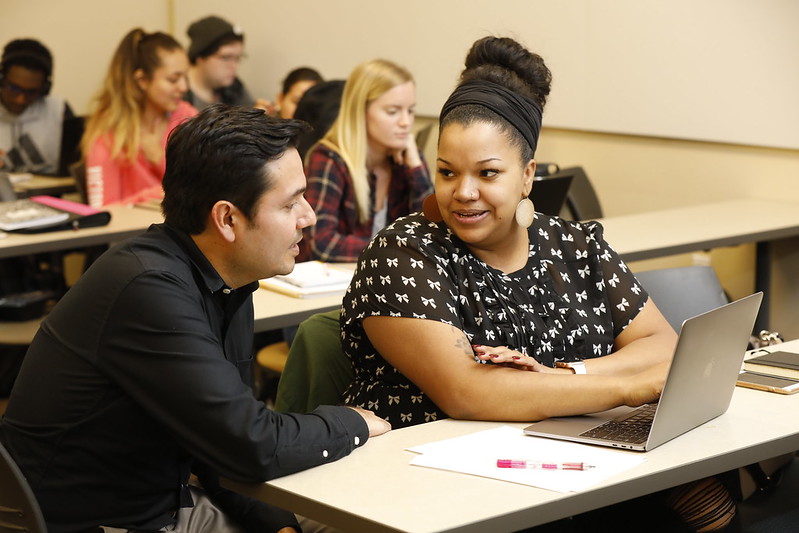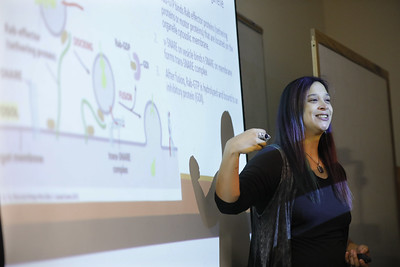Main Content
Good intentions are not enough. As faculty, becoming "aware of the implicit assumptions that frame how we think and act is one of the most challenging intelletual puzzles we face in our lives. It is also something we instinctively resist, for fear of what we might discover" (Brookfield, 2017, pp 2-3). Anti-oppressive pedagogy is grounded in the practice of self-reflection beginning with the examination of our own identitities, beliefs, biases and learning preferences which can shape teaching habits and behaviors. This on-going uncovering is an iterative process that models deep critical thought and is essential to culturally responsive, anti-racist, equity minded instruction.
Resources
Chesler, M., Young Jr, A., Kaplan, Matthew, & Miller, A. T. (2007). "Faculty members' social identities and classroom authority." New Directions for Teaching and Learning,(111), 11-19.
SPOTLIGHT: Faculty Reflections

Image: Assistant Professor, Dr. Rubén Casas sits at a desk with a student in class. They are talking and looking at a laptop screen.

Image: Assistant Professor, Dr. Anna Groat-Carmona, stands smiling in front of a screen while leading a biology class.
